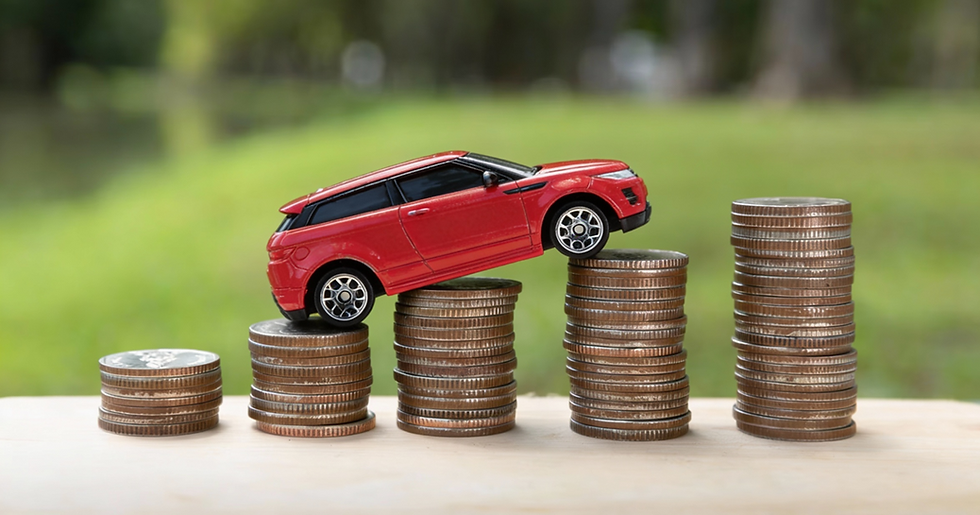Should You Buy a New or Used Car? It’s Not as Obvious as You Think
- LeeAnn Shattuck

- Aug 14, 2020
- 3 min read
Updated: May 16, 2025

Buying a car isn’t like grabbing a gallon of milk or picking your shoe size off the shelf. It’s a serious investment, and deciding between new or used? That’s where the real fun begins. (And by “fun,” we mean endless Googling, second-guessing, and probably a mild headache.)
Let’s get one thing straight—there’s no one-size-fits-all answer here. Some folks are better off with the fresh-off-the-truck new car smell. Others? A gently used ride saves them thousands and still gets the job done. But if you want to make the smart choice for your wallet and your sanity, you’ll need to understand a few key things first.
Why Do Cars Depreciate Faster Than a New Phone Battery?
You’ve probably heard the classic line: “A new car loses 20% of its value the second you drive it off the lot.” Is it true? Kind of. But also… not exactly.
Here’s the real story: the second your brand-new ride gets registered in your name, it becomes a “used car.” Even if it still has that new car smell and you’ve only driven it to Starbucks and back. The market doesn’t care. Buyers aren’t going to pay new car prices for something technically used, no matter how fresh it feels. (Unless you're in a pandemic-fueled inventory shortage.)
And don’t forget the lovely “sunk costs” like taxes, tags, and title fees. They don’t add value to your car, but they sure do add to your bill. So yes, depreciation is real, and it hits hardest in those first few years.
What Affects Depreciation?
Not all cars depreciate equally. Some nosedive in value faster than a Cybertruck’s towing range. Others hold their worth like gold-plated unicorns. Here’s what makes the difference:
Brand & Origin: Japanese brands tend to hold their value better than American or European models. Sorry, but facts are facts, and they based on perceived reliability.
Type: Massive SUVs and luxury rides? They drop like rocks. Reliable small SUVs and hybrids? Not so much.
Popularity & Supply: Rare or in-high-demand vehicles depreciate slower. Think Toyota Tacoma, not Jaguar i-Pace.
Oh, and that sweet spot for buying used? Around three years old. That’s when most of the value drop has already happened, but the car still has plenty of life left and may still be under factory warranty.
When Buying New Actually Makes More Sense
Used cars might save you money, but they don’t always save your time—or your patience. Here’s when buying new might be the better move:
🚗 You’re In a Hurry (or Hate the Hunt)
Finding a solid used car takes time, energy, and maybe a bit of luck. Buying new? You can stroll into a dealership, point to the one you want, and be on your way—now that the pandemic is over.
📦 You Want Specific Features
Looking for a rare trim, new tech, or very particular color combo? Good luck finding that used. New cars give you control, especially for models that just launched or were recently redesigned.
🧮 The Math Isn’t That Different
Sometimes new cars come with hefty rebates or financing offers that make them nearly as cheap as the used version. I’ve seen deals where the new one was actually less than a one-year-old used model. Why pay almost the same for someone else’s leftovers?
🔧 You Want Peace of Mind
With a new car, you get the full factory warranty, known history (aka no surprises), and zero sketchy past. That’s worth something—especially if you’d rather not roll the dice on someone else’s wear and tear.
But Used Can Be a Killer Deal—If You Do It Right
If you know what to look for (or better yet, have someone like me in your corner), used cars can be a fantastic value. The key is doing your homework:
Check maintenance history
Look at mileage and condition
Make sure it hasn’t been in a dozen fender benders
Avoid the first model year of a major redesign (bugs happen)
And remember: the savings on taxes, insurance, and depreciation can add up fast. Over a lifetime of car ownership, buying used instead of new could save you upwards of $100,000. That’s not chump change—that’s a beach house, folks.
Final Gear Shift: What Should You Do?
The decision to buy new or used depends on your budget, your timeline, your must-have features, and your appetite for risk. Either way, don’t just fall for the shiny object or the too-good-to-be-true deal. Think long-term value and overall quality.
If you want a car that fits your life (and doesn’t break your bank), make sure you're shopping smart—not just fast.
Not sure how to start shopping without getting steamrolled by salespeople? Check out my no-nonsense online course, The No BS Guide to Buying a Car. It’ll walk you through the whole process—without the fluff, scams, or dealer drama.




Comments